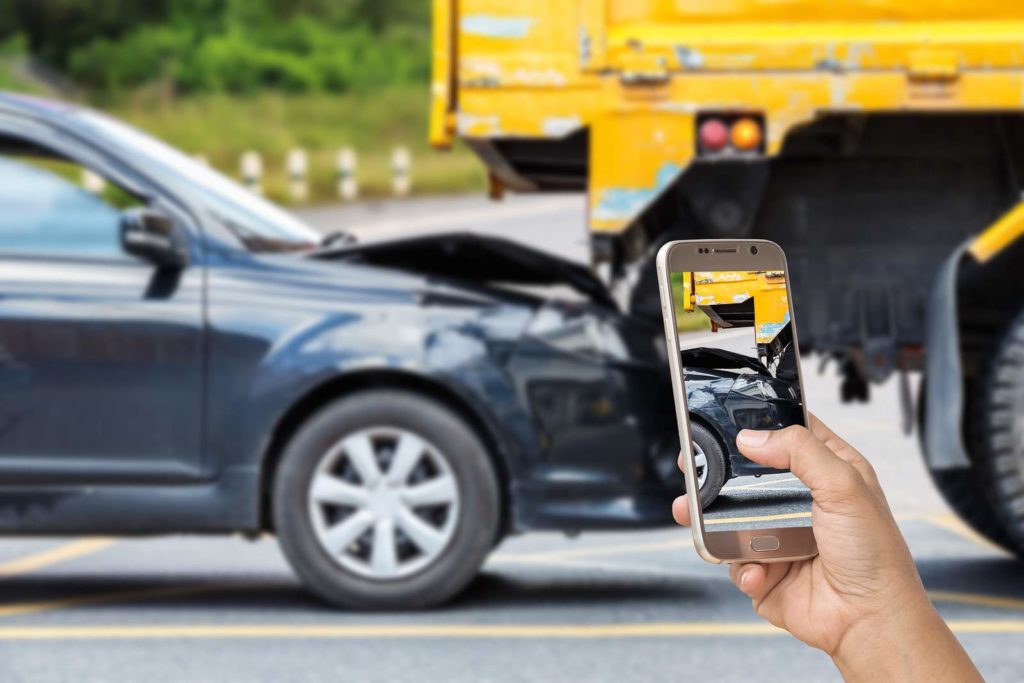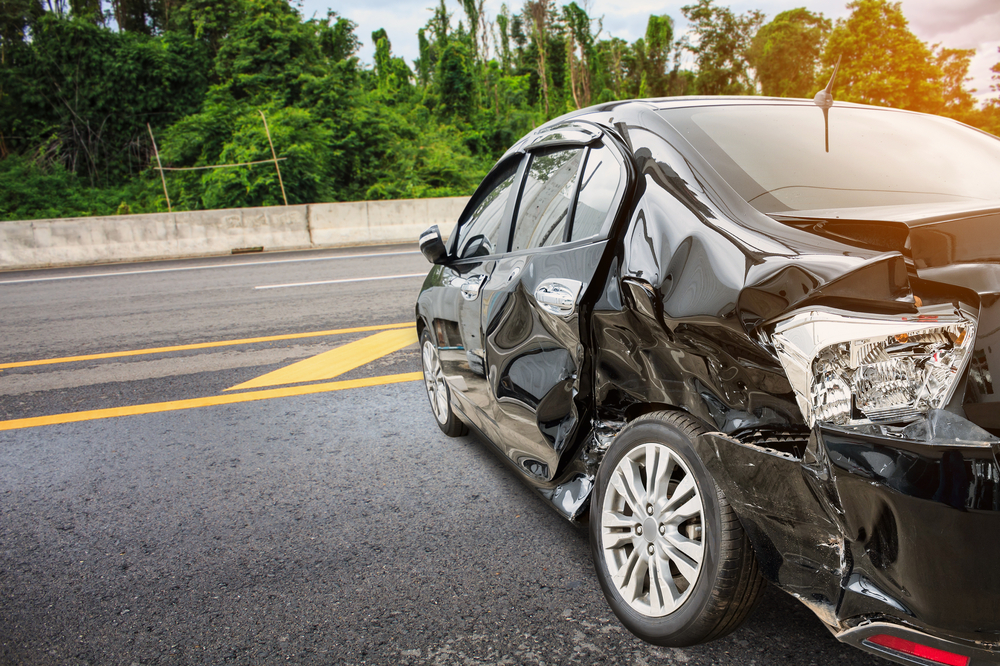When you get into a vehicle, you expect everyone to follow driving laws and take care to keep others safe. However, only some people drive responsibly. Sometimes drivers make mistakes or have unexpected medical issues. In other cases, people are just plain negligent—they speed, drive recklessly—or even aggressively, break traffic laws, and do other things that cause accidents.
Accidents often cause life-changing injuries and death. If you survive a car accident, you should hold the at-fault drivers responsible by recovering the compensation you deserve—not what the insurance company thinks you should receive. Florida car accident attorneys can help you prove the other driver’s negligence—if the other driver was negligent—and recover the compensation you deserve.
Common Negligent Actions

Most car accidents happen because of negligence. If someone crashes because of an unexpected heart attack, that is a genuine accident. However, if the same person crashes because of a heart attack and the person knowingly did not take his medication, a court might consider that negligence.
Other examples of negligent behavior include:
- Failing to obey traffic laws, such as speeding and running traffic controls
- Driving while distracted, whether eating, texting, fiddling with the radio, conversing with someone in the vehicle, or looking back at your children in the rear seat
- Failing to maintain control of the vehicle, such as stopping suddenly, abrupt lane changes, and swerving
- Poor vehicle maintenance, such as driving on bald tires, worn steering and suspension, and worn engine mounts
- Poor road maintenance.
- Driving too fast for conditions- The driver could drive at the speed limit, but if it is raining so hard that you can’t see, the speed limit is too fast. Another example is driving too fast for a curve, causing the vehicle to roll over.
- Driving under the influence of alcohol, drugs, or other illicit substances
- Driving while tired or fatigued-If a driver is tired, a short half-hour nap can revive him. However, fatigue doesn’t go away with a nap or even eight hours of good sleep. Many truck drivers drive tired because of their schedules.
Even though truck drivers must obey the hours-of-service regulations, you’ll find drivers who ignore them or who abide by them but are so burned out that they have chronic fatigue.
Elements of Negligence
To recover compensation for a car accident caused by a negligent driver in a Florida accident, you must be able to show the driver’s actions or inactions were negligent.
Negligence has four elements that you must prove:
- Duty of care: Using the heart attack scenario, the driver purposely did not take her medication for over a month, which caused her heart to fail. The driver did not consider the safety of others before she got behind the wheel.
- Breach of duty: The driver breached her duty of care by driving without taking her medication and knowing she could suffer a heart attack.
- Causation: You must prove that the driver’s actions or inactions—in this case, not taking her medication and having a heart attack—were the cause of the accident that caused your damages.
- Damages: You suffered injuries and losses that might or might not have a monetary value.
The damages you suffer determine the value of your case.
Recovering Damages After a Negligent Driver Causes a Florida Car Accident
Florida allows you to recover compensatory damages and punitive damages. The court orders a defendant to pay compensatory damages to make you financially whole again. However, it only allows punitive damages under certain circumstances. Compensatory damages have two categories: Economic damages and non-economic damages.
Economic Damages
Sometimes referred to as special damages, economic damages have a monetary value.
Most people injured because of a negligent driver can recover economic damages, including:
- Doctors’ appointments, surgeries, follow-up appointments, prescriptions, prescribed over-the-counter medications and medical equipment, and ambulatory aids
- Accessibility aids for your home and vehicle, such as wheelchair ramps and lifts for the vehicle, hand controls, wheelchair ramps and widened doorways for your home, handrails, and grab bars
- Therapy expenses, including physical therapy appointments, psychological therapy appointments, cognitive therapy appointments, and occupational therapy appointments
- Home health care
- Nursing home or rehabilitative care
- Loss of current and future earning capacity. Even if you can work part-time or full-time for less than you made before the accident, you could recover loss of partial earning capacity.
- Compensation for repair or replacement of damaged or destroyed personal property, including your vehicle and anything of value in the vehicle
- Death-related expenses, including funeral expenses, burial expenses, cremation expenses, certain probate court costs, and probate attorneys’ fees and costs
If you believe you will have any of these expenses for the rest of your life, your attorney works with experts to determine the approximate lifetime cost of your medical care and loss of income. This is why some settlements and trial awards are millions of dollars.
Non-Economic Damages
Sometimes referred to as general damages, non-economic damages do not have a monetary value. Not everyone recovers non-economic damages.
In most cases, only those who lost a loved one or suffered long-term or permanent disabilities due to accident injuries recover non-economic damages, including:
- Pain and suffering, including emotional distress.
- Loss of quality of life if you must make lifelong changes such as using ambulatory aids or taking prescription drugs.
- Loss of companionship if you can no longer enjoy spending time with your family or can no longer attend family activities and events.
- Loss of consortium if you can no longer enjoy a physical relationship with your spouse.
- Loss of use of a body part, such as an arm or a foot
- Loss of bodily function, such as your eyesight or bladder
- Disfigurement or excessive scarring
- Inconvenience if you have to hire someone to do the chores you normally do, including but not limited to house cleaning, lawn maintenance, grocery shopping, and home repair and maintenance.
- Amputation of a digit or limb
Punitive Damages
If you believe the defendant’s actions or inactions were grossly negligent or intentional, you can ask the court to award punitive damages. You can only recover punitive damages if the court orders the defendant to pay compensatory damages.
Additionally, Florida requires you to bifurcate the trial into two parts. Because you can’t recover punitive damages unless you know you will receive compensatory damages, the court can’t hear your claim for punitive damages until it rules on compensatory damages.
What is the difference between ordinary negligence and gross negligence? When a person’s actions or inactions are ordinary negligence, that person committed a careless mistake or was inattentive. However, the courts consider gross negligence to be reckless behavior or having a deliberate disregard for the safety of others.
Types of Injuries a Negligent Driver Can Cause
The injuries you might sustain depend on many factors, including the size and weight of the vehicles, vehicle speed, and the number of vehicles involved in the wreck. Your injuries also depend on how the at-fault driver hits you, whether in a head-on, rear-end, sideswipe, or t-bone collision.
Common car accident injuries caused by negligence include:
- Bumps, bruises, cuts, scratches, and scrapes
- Strains and sprains
- Pulled and torn muscles and other soft tissue injuries
- Simple and compound fractures
- Crushed bones and crush injuries
- Internal injuries
- Face and eye injuries
- Head, neck, and shoulder injuries
- Traumatic brain injuries
- Chemical and thermal burns
- Amputation of a digit or limb
- Back and spinal cord injuries
- Lung injuries, whether from a punctured lung or from breathing in fumes from burning chemicals, including fuel and oil
The defendant is also responsible for secondary injuries, such as infections that develop in open wounds, whether that wound is one you sustained in the accident or a surgical wound. Additionally, if your car accident injuries exacerbated existing illnesses or injuries, the defendant is responsible for the additional medical expenses and pain and suffering as you wouldn’t have them but for the defendant’s negligence.
The Best Time to Retain a Florida Car Accident Lawyer

It is always best to retain a Florida car accident lawyer as soon as possible for many reasons, including the statute of limitations. Florida allows up to two years for negligence claims, such as car accidents.
While two years seems like a long time, many things happen before you can file a lawsuit, including investigating your case. A Florida car accident lawyer might send investigators out to the scene, plus the lawyer gathers pertinent documents, such as police reports and medical records, requests discovery from the defendant, and deposes witnesses.
Your attorney must also determine a fair and reasonable settlement or trial award. If your injuries are minor or severe, such as a broken leg, determining a fair amount is not too difficult. However, if doctors expect your injuries to cause long-term or permanent disabilities, determining a fair amount becomes more difficult.
Your attorney may have to consult with expert witnesses—doctors and medical professionals who have extensive experience in treating the type of injuries you have and have experience testifying in court as to those injuries and how they will affect you for the rest of your life. Expert witnesses are usually those who do not have a working relationship with you—they are usually doctors who are not treating you.
Fighting With the Insurance Company
Another reason to retain a Florida car accident attorney as soon as possible is because of the insurance companies. They will argue that your injuries are better than you say if you wait to retain an attorney. They will use this to deny your claim or offer you a pittance that might not even cover your medical expenses.
That is just one of the “games” insurance companies—even your own—play. They are in business to make a profit, and every claim they pay is money out of their pockets.
It’s best not to discuss the accident with them at all. The only information you should give an insurance company, including your own, is your name, the date, time, and location of the accident, and your attorney’s contact information. One of the insurance company’s best tricks is to use your statements against you to place the blame for the wreck on your shoulders.
Another trick insurance companies use offering you an amount right away and telling you it is the most they can pay. This is almost never true.
Finally, depending on the circumstances of the accident, more than one defendant could be responsible for your injuries. For example, if a tractor-trailer truck crashes into you, the driver might not be the only one at fault.
Determining Responsibility for a Car Accident
Sometimes, the driver isn’t the only person responsible for your damages. Generally, you have multiple defendants in cases where the defendant is a commercial driver. However, more than one person could share responsibility for your injuries and losses if a random person driving a car crashes into you.
Other than the driver, those that might share responsibility for your injuries and other losses include:
- Vehicle manufacturers.
- Trailer manufacturers.
- Auto and truck technicians.
- Trucking companies.
- Commercial vehicle owners who lease the vehicles to drivers.
- Municipalities responsible for road maintenance and repair.
- The owner of a passenger vehicle if different from the driver.
- Inspectors and dispatchers who do not work for the trucking company (third-party).
If you suffered injuries or lost a loved one because of a negligent driver—even if you are not sure the driver was negligent—contact a Florida car accident lawyer as soon as possible for a free, no-obligation case evaluation.
Schedule A Free Consultation